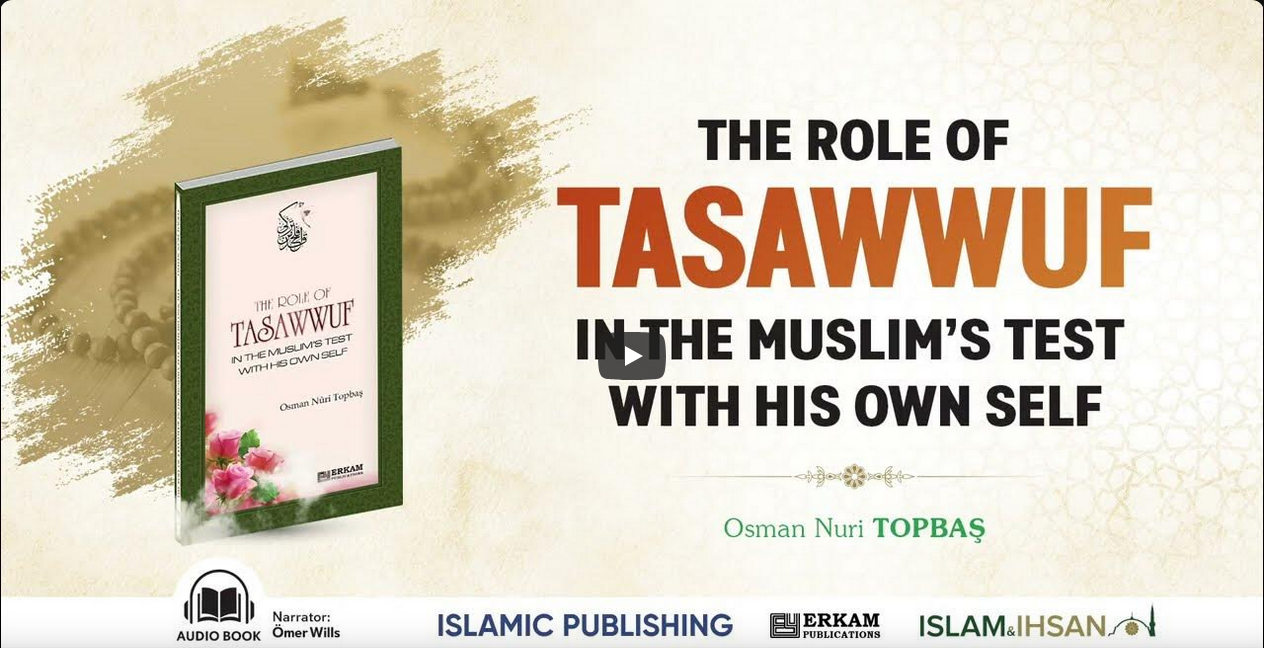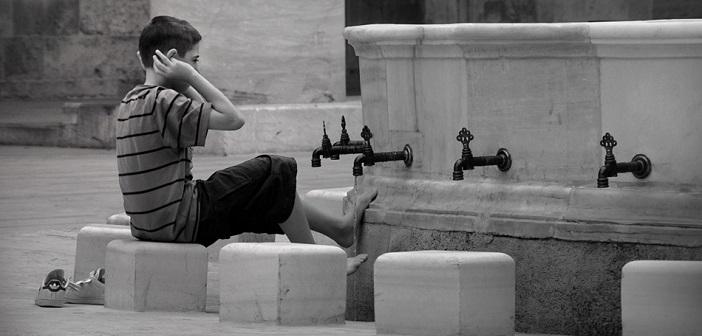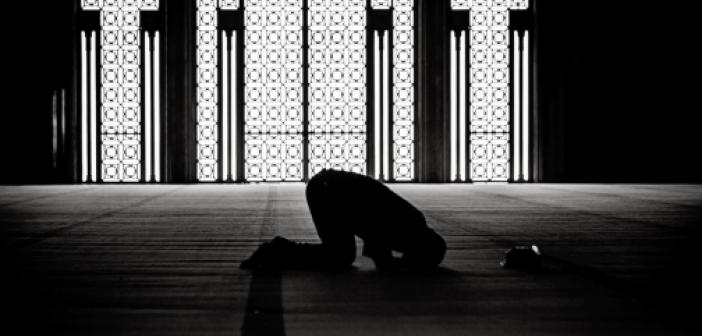
Ja’far as-Sadiq
Ja’far as-Sadiq [699 - 765]
Ja’far as-Sadiq (may Allah have mercy on him) was born in Madina in the 80th year after the hijrah. He was a man whose essence and words were upright and who was given the title ‘Sadiq’ on account of his extreme honesty and trustworthiness.
He was also known by the names ‘Sabir’ (the patient one), Fadil (the virtuous and mature one, of superior character), Tahir (pure and clean), and Atir (having a beautiful scent).
Ja’far as-Sadiq’s father was Muhammad Bakir and his grandfather was Zayn al-Abideen whose father was Hussain (may Allah be pleased with him) the grandson of the prophet. The lineage of Ja’far Sadiq goes back to Ali (may Allah be pleased with him) on his father’s side, and on his mother’s side to Abu Bakr (may Allah be pleased with him). He thus combined the physical and spiritual lineage of both the ahl al bayt and of Abu Bakr and brought a unique beauty to the Golden Chain.
From a young age, Ja’far Sadiq was raised in a family and neighbourhood, which had reached the peak of knowledge, worship, virtue and good character. He studied with such Companions as Anas ibn Malik (may Allah be pleased with him) and Sahl ibn Sa’d (may Allah be pleased with him); with the famous Tabii’een scholars Ata, Zuhri, Urwa, Iqrima and Nafi from whom he learned aqaid (creed), tafsir (commentary on the Qur’an), hadith, and fiqh.
He benefitted greatly in particular from both his honourable grandfathers Zayn al-Abideen and Qasim ibn Muhammad who were great scholars themselves and from his honourable father, Muhammad Bakir. He narrated many hadith from them[1]. All of these individuals were great scholars and leaders (imams) of Madina. May Allah be pleased with all of them.
That is, Ja’far as-Sadiq’s teachers, his family and he himself were competent, trustworthy and righteous religious men with sincerity, taqwa, knoweldge of Allah, uprightness, and justice.
In his famous book Tathkirat al-Awliya, Fariduddin Attar begins this book, in which he compiled the lives of the Friends of Allah, the lessons we can learn from them, and their wise advice, by narrating the life of Ja’far as-Sadiq for the blessings.
When Qasim ibn Muhammad passed away, his grandson Ja’far as-Sadiq was 28 years old and he had begun to teach the knowledge he had learned to the people[2].
His Life of Worship
Ja’far as-Sadiq preferred seclusion and would give himself to study and worship. He was a great Friend of Allah, who lived his life in a constant state of worship, abstention and deep reverence.
Imam Malik (may Allah have mercy on him) said about him:
“I would enter the presence of Ja’far as-Sadiq; he was fond of beautiful and subtle words and would always have a smile on his face. Whenever the prophet was mentioned in his presence he would immediately collect himself and he would practically turn pale. I went to him for a long time and I always saw him in one of these three states: He was either praying, fasting or reciting the Qur’an. I never heard him narrate a hadith without having his ablution. He never spoke anything which was of no benefit. He was a worshipper and ascetic whose heart trembled from fear of Allah. Whenever I went to him he would immediately offer me the cushion that he was sitting on...”[3].
Ja’far as-Sadiq (may Allah have mercy on him) had the following to say about worship:
“For every person of taqwa, salat is closeness to Allah. The hajj is jihad for the weak. Fasting is the zakat of the body. An inviter who has no good deeds to his name is like a person who tries to shoot from his bow without an arrow. As long as you give charity, try to ensure that provision is bestowed upon you abundantly. Protect your wealth by giving zakat. The one who is frugal will never be in need. Taking one’s precautions is half of living. To be friends with the people is half of intelligence...The one who grieves his parents will have been rebellious against them. The one who is unable to be patient in the face of calamity and who becomes angry will have deprived themselves of reward...Allah Most High has sent down patience in accordance with calamities, and provision in accordance with need. Allah, Most High, will provide for the one who manages his wealth. However, Allah will deprive the one who wastes his wealth”[4].
Sufyan Sawri (may Allah have mercy on him) narrates:
“I went to Mecca to perform Hajj and saw Jafar ibn Muhammad Abtah sitting on his camel. I asked him:
“O son of the Messenger of Allah. Why were the outskirts made the site of waqf rather than Mash’ar al-Haram?”
He replied:
“The Ka’bah is the House of Allah, the Haram area is like the curtains of the House and the waqf place is the gate to the House. When the servant wanted to go to Allah they stop at the gate and supplicate and entreat Him. When they are allowed inside, they are shown a second gate which is Muzdalifah. When He sees that they plead and supplicate even more, and show even extra efforts, He shows them mercy and when He is merciful to them He commands them to present their sacrificial animals. When they sacrifice their animals, and cleanse themselves of their impurities and their sins they are commanded to visit the House”.
“Well then why is it disliked to fast on the Days of Tashriq?” Ja’far as-Sadiq replied:
“This is because on these days the people are at the Feast of Allah. It is not nice for a guest to fast at their Lord’s feast”.
“Please tell me, why do the people attach themselves to the cloth that covers the Ka’bah even though it is a useless piece of cloth?”
He replied:
“This is like the one who commits a sin and who then falls at the skirt of the One and revolves around Him in order to have their sin forgiven”[5].
Ja’far as-Sadiq explained the truth in the istiaze (seeking refuge in Allah from Satan) that we read before reciting the Qu’ran, that is:
“(The true) istiaze is honouring the Qu’ran by cleansing the mouth of lying, backbiting, and slander of others”[6].
Without a doubt this expression is a typical example of the sensitivity of his heart when it came to worship.
Another time Ja’far as-Sadiq (may Allah have mercy on him) said:
“The pleasure to be found in the address of Allah, Most High, that is ‘O you who believe’, removes the fatigue and heaviness of worship and obedience (and turns their worship into a spiritual feast)[7].
His Remembrance of Allah (dhikr) Carried a Special Prosperity and Spirituality with It. He said:
“True dhikr is that which makes a person forget all masiwa (that is everything that distances him from Allah). At that point, Allah, Most High, is above all else”[8]
Ja’far as-Sadiq would visit the cemetery at night and say:
“O people of the grave why do you not answer me when I call you?”
Then he would say to himself:
“By Allah, something has come between them and their response. Now it is as if I have become like them and joined them”. He would then turn and face the qibla and occupy himself with contemplation and worship until the dawn[9].
One day a poor man asked Ja’far as-Sadiq:
“Why do you work day and night?” He replied:
“I saw that nobody else can perform my task as I can, so I decided to do it myself and I threw off laziness. Ever since I was created my provision has come and reached me. This is why I have no ambition nor greed left in me. One day death will come and reach me, and nobody else will die in my place. Thus I began to prepare for death and to meet it. I have seen no loyalty from the people and so I preferred, with all my heart, the loyalty of Allah, Most High, and abandoned everything else. Since they are a mere illusion, I have abandoned them all”[10].
The human being was not created for play and entertainment; he was created to reach Allah, by growing in spirituality. In that case one should lead a fruitful life of worship and not waste the precious capital of life that one has. Does man not know that a leaf falls from the calendar of his life every day? The days and the nights follow each other, the blessings of the dawn and the morning pass over the one who is sleeping in heedlessness. Those who spend their lives heedlessly in this way will wake up on the morning of the Day of Judgement with nothing in their hands. The capital of their life will have been used up. The small number of deeds that they performed heedlessly will not be enough to save them.
His Beautiful Character
Ja’far as-Sadiq was at the peak of mercy, compassion, gentleness, patience, forgiveness and generosity. He did not fear anyone other than Allah. He did not give the slightest importance to those who censured or mocked him. He did not fear the ruler due to his position, nor did he refrain from telling the truth to people due to their large number. The praise of those who praised him did not deceive him, and neither did he turn back from his way when his enemies criticised him.
One day a man who lost his money bag, went to Ja’far as-Sadiq, not knowing who he was and grabbed his collar and said:
“You stole my money”. He replied:
“How much money did you have in your bag? “The man replied:
“A thousand dinars”
Without saying a word, Ja’far as-Sadiq took that man to his house and gave him a thousand dinars. When the man later found his bag, he apologised to Ja’far as-Sadiq and returned his money. Ja’far however said:
“We do not take back what we give”. The man was shocked and asked:
“Who is this man?” When he learned that he was Ja’far as-Sadiq his embarrassment increased even more[11].
Ja’far as-Sadiq had a servant. He would pour water from the urn and Ja’far would wash his hands with it. At one point the water splashed on to his dress. Ja’far looked at his servant a little angrily. The slave then said:
“Master, in the Qur’an Allah gives good tidings of forgiveness and Paradise to ‘those who control their rage’ (وَالْكَاظِم۪ينَ الْغَيْظَ)[12]”. At that point Ja’far said:
“I have swallowed my anger”.
The slave continued to read the rest of the verse.
“ (‘and pardon other people)’.
“Okay I forgive you”.
The slave continued to read the rest of the verse:
“‘(Allah loves the good-doers)'.
Ja’far then said:
“Go, you are now free for the sake of Allah. Take these 1000 dinars with you”[13].
Ja’far as-Sadiq (my Allah have mercy on him) would show great contentment and submission in the face of misfortunes and calamities that befell him due to the decree of Allah. When his young child passed away in his arms, he did not respond with anything but resignment and contentment with the decree of Allah. Some tears fell from his eyes due to his fatherly compassion. He considered all of the other bounties Allah bestowed upon him and sought refuge in Him as follows:
“You have taken back one of Your bounties but continue to bestow on me numerous other ones. You have tested me once but continue to keep me in good health”.
He then took his child to his wife and his other female relatives. When the women saw that the child had died they began to weep and wail. Ja’far warned them to avoid doing so.
As he went to bury his child, he said the following as an expression of the sincerity of his heart in being at the peak of contentment with the decree of Allah:
“I glorify Almighty Allah who has taken our child. Our love for Him has only increased”.
After burying his child he said:
“We are such a people that we pray to Allah that He bestows upon us people and things we love and He bestows them upon us. If He decrees certain things that we do not like for people that we love, then we are content with that”[14].
What a magnificent display of the adab of the servant. The secret behind these elevated spirits reaching the peak of spirituality is that they never complained or bemoaned in the face of the weightiest of divine trials but rather turned to Him with an increased contentment, submission, praise, gratitude and love.
His Virtues
Ja’far as-Sadiq was a cheerful and sweet spoken Friend of Allah. Both his character and his face were radiant. He resembled his great grandfather Ali (may Allah be pleased with him). He was extremely dignified and awe-inspiring.
Ja’far as-Sadiq was such a virtuous man in every respect that those who looked at his blessed face could immediately see that he was from the family of the prophet (peace and blessings be upon him)[15].
His spiritual perfection and superiority was greater than what was said about him. He was called ‘Shaykh Bani Hashim’, the great leader of the tribe of the Sons of Hashim[16].
It is enough of an expression of his virtue to keep in mind the following truth: All believers invoke peace and blessings upon the prophet, and also pray for his ahl al-bayt and their later generations. In fact, after the tahiyyat in salat, if one does not invoke peace and blessings on the prophet and his family, his salat is not considered to have been performed correctly.
Ja’far ibn Muhammad was a very generous Friend of Allah. He would feed the poor and give out to the needy. He would give out so much in charity, without fear of poverty for himself, that he would have practically nothing left for his family[17].
In the matter of giving charity in secret and helping those in need he resembled his blessed grandfather Zayn al-Abidin. When night fell, Zayn al-Abidin (may Allah have mercy on him) would go out with his bag of provisions over his shoulder, containing bread, meat and money and leave whatever was needed outside the door of the poor without anyone knowing. This situation only became known after he passed away, and the poor were left without a helper[18].
When the blessed corpse of Zayn al-Abidin was being washed, they found large wounds filled with pus on his back. When they looked for the reason they found that it was from carrying the bags of provision to the poor[19].
Ja’far as-Sadiq was very humble. One day Sufyan Sawri saw him wearing a valuable dress. When he said that he did not see it fit for the family of the prophet to be wearing such a garment, Ja’far showed him the dress that he was wearing under it which was made of very harsh wool. After saying that it was more fitting for him to wear the nice clothes that everyone was wearing at that time in which economical means had become plenty, he said:
“I wore the under garment for Allah and the one over it for you. I have hidden the one for Allah and displayed the one for you”[20].
In truth, to wear old clothes in a society of such means, would imply that the one wearing them was feigning asceticism and could even drag them to conceit. With this act of his, Ja’far as-Sadiq was protecting himself from hidden dangers such as ostentation (riya) arrogance (‘ujb), conceit (kibir) and the pride of modesty in order to become truly humble.
Ja’far as-Sadiq was a man of chivalry [futuwwa]. One day Shaqiq al-Balkhi asked him what futuwwa was and he responded:
“What do you have to say about this matter?”
Shaqiq replied: “If we are given something we are grateful and if we are not then we are patient”.
Ja’far as-Sadiq replied:
“Our dogs in Madina do that. For us futuwwa is that when we are given something we prefer others over us (by giving it to them) (i’thar) and if we are not given anything, then we are grateful”[21].
Ja’far as-Sadiq was a Friend of Allah, whose prayers were accepted in His sight. Whenever he asked for something from Allah, he would be granted his request before he even finished making the prayer[22]. Many similar wonders (karamat) can be mentioned about him[23]. It was because of this elevatedness of Ja’far as-Sadiq that while he was still alive, some incorrect beliefs, and extreme praise and lies began to be spread about him. These would make him very uncomfortable and he would continue to reject and deny them[24].
One time when Abduljabbar ibn Abbas Hamdani wanted to leave Madina with a group of people, Ja’far as-Sadiq approached them and said:
“By the will of Allah you are from the righteous men of our city. Inform the people of the city that you are going. I distance myself from whoever claims that I am a sinless (ma’sum) imam to whom obedience is compulsory. I am also distant from whoever claims that I do not love Abu Bakr (may Allah be pleased with him) and Umar (may Allah be pleased with him) and turn away from them[25].
These and other similar narrations support each other and demonstrate the obvious love of Ja’far as-Sadiq and all of the ahl al bayt for Abu Bakr and Umar. Any other words attributed to the ahl al-bayt are nothing more than great slander. Ja’far as-Sadiq would rebuke the Rafizis and scold them whenever he heard them malign, in secret or openly, his great grandfather Abu Bakr (may Allah be pleased with him)[26].
His Humility
Ja’far as-Sadiq was very humble. He never belittled anyone and saw every other believer as being better than him. One day he called his servants to him and said:
“Come and let us make an agreement for the Day of Judgement. Let us promise each other that whoever of us is saved on that Day, let him intercede for the others”.
They replied:
“O grandson of the Messenger of Allah! Your grandfather is the intercessor of all of the worlds so what need would someone like you have of our intercession?”
Ja’far as-Sadiq replied with this answer full of humility:
“On that Day, I would be embarrassed to look at my blessed grandfather’s face with this bad state of mine and these worthless deeds”[27].
Scholars and ascetics, and in fact all people wished to benefit from Ja’far as-Sadiq. One day Dawud Tai came to him and told him that his heart had hardened and asked him for some advice. Ja’far as-Sadiq replied:
“You are the most ascetic man of our times, what need do you have of my advice?
Dawud Tai replied:
“O son of the Messenger of Allah! You have superiority over the people. You should be preaching to everyone”.
Ja’far as-Sadiq gave the following answer which showed his fear of Allah and his high degree of humility:
“O Dawud! I fear that on the Day of Judgement my blessed grandfather will grab me by the collar and say: “Why did you not follow me properly? This affair has nothing to do with lineage, but rather to do with observing the rights of Allah”.
Upon that Dawud Tai began to weep saying:
“O my Lord! If a person who is from the lineage of the prophets, whose grandfather is the Messenger of Allah, whose mother is Batul, lives in such fear then who is Dawud to be content with himself and approving of his deeds and hİs behaviour”[28].
Ja’far as-Sadiq would invite people to be humble and warn them of acting selfishly and becoming arrogant. One day he encountered a tribe of people and asked them:
“Who is your master?” One of them replied:
“I am”.
Ja’far as-Sadiq was not pleased with this reply and he cautioned him saying:
“If you were really the master of these people you would not have claimed to be. (You would have said that you were their servant)”[29].
That is because egotism and selfishness are an obstacle to true masterhood.
Another one of his sayings about this matter is significant:
“A sin that begins in fear, and then ends in regret will bring the servant closer to Allah. But worship that begins in self-confidence and ends in conceit will distance the servant from Allah. The obedient one who is self-satisfied is in fact a rebel and the rebel who apologises (for his deeds) is in reality obedient”[30].
At no time did Ja’far as-Sadiq ever desire leadership but rather preferred seclusion and silence. The one who delves into the ocean of marifatullah does not then desire the shore; that is, the person who has become familiar with Allah gives no importance to the praise of people.
His Taqwa
Ja’far as-Sadiq used to say:
“There is no provision better than taqwa, nothing better than silence, no enemy more dangerous than ignorance, and no illness worse or more serious than deceit”[31].
At the end of the month of Ramadan he used to pray as follows:
“O Allah, Lord of Ramadan, who revealed the Qur’an! This is the month of Ramadan in which He revealed the Qur’an and it is almost over. O Lord I seek refuge in the Noble Being that the dawn does not break and Ramadan leave us before all of my sins are forgiven”[32].
Imam Malik narrates:
“I once went for Hajj with Ja’far as-Sadiq. When he was about to pronounce the talbiyah his face changed colour and he began to tremble. I asked him:
“What is wrong, o son of the Messenger of Allah?”
“I became like this when I wanted to declare the talbiyah”
“So what prevented you from doing so?” I asked. He replied:
“I fear hearing a reply other than “As you wish, my servant”[33].
When we look at the prayers and supplications made by Ja’far as-Sadiq we immediately see his fear of Allah and the high level of taqwa he had in his heart. One time he prayed as follows:
“O Allah! Raise me up as long as I obey You and do not disgrace me by allowing me to rebel against You”.
“O Allah. Allow me to offer to those whose provision You have limited from the plentiful bounties that You have bestowed upon me”. Some righteous men who heard this prayer said:
“This is the prayer of the ashraf (the great spiritual men)”[34].
He Was at the Peak of the Physical and Spiritual Sciences
Ja’far as-Sadiq would run after the Blessed Companions (may Allah be pleased with them) in order to learn about the Messenger of Allah (peace and blessings be upon him) and asked and learned of his unique personality, his blessed life, and his Sunnah from them. We understand this from their narrations in the well-known books on hadith.
Ja’far as-Sadiq was raised in such a blessed family, which was dedicated to acquiring knowledge and which did not withhold any efforts and sacrifices made in attaining it. He dedicated himself to attaining knowledge in the city of Madina, which was the centre of prophetic knowledge. He did not suffice with the knowledge that he learned from his family but rather studied and learned from any of the Blessed Companions that he could find and from the great scholars of the Tabii’een. With the knowledge that he learned, he later became the teacher of many great scholars in both the physical and the spiritual sciences. Many great scholars such as Imam Malik, Sufyan al-Thawri, Sufyan ibn ‘Uyaynah, Abu Hanifa, Ibn Jurayj, Yahya ibn Said and Yahya al-Qattan learned and related many hadith from him[35].
Ja’far as-Sadiq spent his entire blessed life correcting people’s beliefs, explaining the shariah, and declaring the truth and reality through his talks and his letters[36].
He stayed away from politics, preferring to occupy himself with learning. He would call those scholars and faqihs who did not apply to the sultan for worldly benefits as being the trustworthy heirs of the prophets, guiding mankind[37].
He was the leader of the Muslims, the guide of the people of marifatullah, and the most noble of the worshippers (abid) and ascetics (zahid). He was unparalleled in terms of his understanding of the Qur’an and the mysteries of its commentaries and its nuances[38]. He was a great muhaddith and also a faqih who had reached the level of being a mujtahid. He had a strong power of inspiration and was honest. His ideas and narrations were trusted[39].
All of the scholars and the people of that time were in awe of his knowledge and virtue[40].
Some of his narrations are as follows:
From his father and his grandfather:
“One day the Messenger of Allah took his blessed grandsons Hasan and Hussain by the hand and said:
“Whoever loves me, these two, and their mother and father, will be together with me on the Day of Paradise” (Tirmidhi, Manaqib, 20/3733).
The Messenger of Allah used to make the following prayer:
“O Allah! Bless the early hours of this community and the tasks that they perform during these hours” (Ibn Majah, Tijarah, 41/2238).
Ja’far as-Sadiq relates the following hadith which has a chain that reaches back to Ali (may Allah be pleased with him):
“I saw the Messenger of Allah climb the pulpit and give the following sermon.
“O people! We act as if death has been written for other than us. It is as if rights have been made obligatory on other than us. It is as if the deceased that we have made farewell to will come back to us a short time later. We eat up their wealth as if we are going to stay here forever. We have forgotten all counsel. We have begun to see ourselves as safe from all calamities (we see ourselves as safe from misfortune and tribulations).
Happy is the one who is occupied with his own failings and does not concern himself with the faults of others! Happy is the one whose earnings are lawful, whose inner self is pure, whose outer appearance is pleasant and whose path is upright (whose lifestyle is ordered)! Happy is the one who shows complete humility before Allah, who gives out from his wealth without falling into sin, who sits with the people of fiqh and wisdom, who helps the poor and weak! Happy is the one who gives out from his wealth that which is above his need, and who controls his tongue and who embraces the entire Sunnah of the prophet and never returns to innovation (bid’a)”.
After saying this, the Messenger (peace and blessings be upon him) descended the pulpit” (Abu Nuaym, Hilya, III, 202-203).
When some of the muhaddithun (transmitters of hadith) saw the hadith that Ja’far as-Sadiq transmitted from his noble father and blessed forefathers, they said:
“If this chain (isnad) of narrators were to be recited and blown over a mad man he would immediately be cured, and come to his senses” (Ibn Majah, Muqaddima, 9/65; Abu Nuaym, Hilya, III, 192).
This is an illustration of how much respect and reverence the scholars of Islam had for the pure and precious family of the Messenger of Allah (peace and blessings be upon him). It also indicates the great virtue of his descendants as the mere mentioning of their names is a means for healing.
His Comprehension and Knowledge of the Qur’an
Reciting the Qur’an is in fact a matter of the heart (in reality the Qur’an is recited with the heart). Whoever is more devoted to Allah and His Messenger (peace and blessings be upon him) will have more knowledge of its mysteries. The greater the degree of one’s devotion and fidelity to Allah and His Messenger, the greater one’s knowledge of its mysteries increases.
The heart of Ja’far as-Sadiq was of such a mould. Consequently his familiarity of the nuances and subtle points of the verses was greater than anyone’s.
He was one of the people that Allah praises in the following verse:
“Then We made Our chosen slaves inherit the Book. But some of them wrong themselves; some are ambivalent; and some outdo each other in good by Allah’s permission. That is the great favour’ (Fatir, 35:32).
He was one of the chosen slaves of Allah and one of the Friends of Allah who raced to do good[41].
One day Ja’far as-Sadiq said:
“If a person says “Rabbena” (O our Lord) with complete sincerity five times when he encounters a distressing or dangerous situation, Allah will keep him safe from what he fears and grant him his desire”.
He was asked:
“How can this be?” He replied:
“Read the 191st-194th verses from the chapter Al’i Imran if you like”[42].
Just these few words are enough to illustrate the depth of his knowledge of the Qur’an:
“Worship without repentance is not sound. In the following verse, Allah Most High mentions repentance before worship: ‘Those who make tawba, those who worship’ (Tawbah, 9:112)[43].
“I wonder at the person who finds something pleasant in themselves and does not say: “مَا شَٓاءَ اللّٰهُ لَا قُوَّةَ اِلَّا بِاللّٰهِ” (It is as Allah wills, there is no strength but in Allah). Almighty Allah says: ‘Why, when you entered your garden, did you not say, “It is as Allah wills, there is no strength but in Allah’? (Kahf,18:39)”[44].
“I wonder at the one who when subject to worry and anguish does not say:
‘There is no god but You! Glory be to You! Truly I have been one of the wrongdoers’ (Anbiya, 21:87)”[45].
“I wonder at the one who when he fears a group of people he does not say: “حَسْبُنَا اللّٰهُ وَنِعْمَ الْوَك۪يلُ” (Allah is enough for us and the Best of Guardians’) when Allah Most High says:
‘...those to whom the people said, ‘The people have gathered against you, so fear them.’ But that merely increased their faith and they said, ‘Allah is enough for us and the Best of Guardians’ (Al’i Imran, 3:173)”[46]
His guidance of Imam Azam
Imam Azam Abu Hanifa had connections with Muhammad Bakir and also with his son, Ja’far as-Sadiq.
Even though they were both of the same age, the scholars consider Ja’far as-Sadiq to be one of Abu Hanifa’s teachers. When talking about Ja’far as-Sadiq, Abu Hanifa would say:
“I swear by Allah that I never saw a person more faqih than Ja’far as-Sadiq”
Another time Imam Azam was asked:
“Who is the most faqih person you have ever seen?” He narrated the following hadith:
“I have never seen a person more faqih than Ja’far ibn Muhammad. When the Caliph Mansur invited him to Hira he sent word to me:
“O Abu Hanifa! The people have become captivated by Ja’far ibn Muhammad. Prepare the most difficult questions for me to ask him”.
I then prepared forty questions for him. Then the caliph Abu Ja’far Mansur sent word to me and I went to Hira. Ja’far as-Sadiq was sitting on his right. When I saw them both I was overwhelmed more so by the awe of Ja’far as-Sadiq than by that of Mansur. I greeted them. The caliph gave me permission and I sat. The caliph turned to Ja’far as-Sadiq and said:
“O Abu Abdullah, do you know this man?” He replied:
“Yes, he is Abu Hanifa”. Then the caliph turned to me and said:
“O Abu Hanifa! Tell us your questions so that we may ask Abu Abdullah”.
I then presented the questions I had prepared. I was asking, and Ja’far as-Sadiq was answering.
“He was saying: “You say such and such about this matter, the people of Madina say such and such, however we say ‘such and such...” Sometimes he would follow our opinion, sometimes the opinion of the people of Madina, and sometimes he would oppose them both. He answered all forty questions in great detail, and did not leave one unanswered.
Did we not say that “the most knowledgeable of people is the one who knows the contentious issues the most” (And so Ja’far as-Sadiq is a scholar who knows best the contentions between different matters of knowledge)”[47].
Abu Hanifa went to Madina to stay with Ja’far as-Sadiq for two years and learned much from him. When Ja’far as-Sadiq went to Iraq they also met with each other. The following saying of Abu Hanifa is in regard to those meetings:
“If it were not for those two years, Numan would have been ruined”[48].
In different meetings, Ja’far as-Sadiq taught Abu Hanifa certain principles considered to be very fine points and sensitive matters that could easily be considered deception if one did not know better[49].
This is why Abu Hanifa relates many things from Ja’far as-Sadiq. When we look at the books called ‘Asar’ of Imam Abu Yusuf and Imam Muhammad, we find many such narrations”[50].
His Death
Ja’far as-Sadiq spent his entire blessed life in the enlightened city of Madina, the land of knowledge. It was there that he passed away 148 years after the hijrah, in the year 765AD. He left a last testament before he passed away: Salat...
Just like the Messenger of Allah (peace and blessings be upon him), at his last breath he insisted upon being careful about salat. After giving advice about continuing to perform salat in a manner of which it is worthy, that is, in accordance with all of its pre-requisites and conditions (ta’dil’i arkan) and with khushu, he was reunited with the mercy of his Lord[51].
He was buried at the Jannat’al Baqi cemetery next to his father Muhammad Bakir, his grandfather Zayn al-Abideen and Hasan, the uncle of his grandfather (may Allah be pleased with them both)[52].
May Allah allow him to intercede for us .
His words of wisdom
- Ja’far as-Sadiq was once asked: “What has happened to us that we pray but our prayers are not answered?”
He replied:
“This is because you are praying to a Being about whom you have no knowledge”[53].
(That is, you have distanced yourselves from an acceptable servitude. That is you stay far away, you do not have taqwa, you do not abide by the command ‘to remember your Lord much’, you do not recognise Him as He deserves to be known with your states and your lifestyles, and you cannot reach marifatullah. So because you are praying with an empty heart, your prayers are not accepted).
- “The person who lives in the outward form of the Messenger of Allah is a Sunni. The person who lives in both the zahir (the outer) and the inner form (batin) is a Sufi”.
By the term ‘batin’ Ja’far as-Sadiq was indicating the Messenger of Allah’s pure and beautiful character and his preference for the hereafter[54].
- “Good deeds only reach perfection with the following three things:
- One acts immediately, without hesitation, once one has made one’s decision,
- To see the deed that one does as being small and to keep oneself distant from egoism,
- To perform it in secret in order to be wary of showing off”[55].
- One day a fly settled down on the face of the caliph, Mansur. However much he tried to brush it away he was unsuccessful in keeping it distant. At that point Ja’far as-Sadiq came and Mansur asked him:
“O Imam! Why did Allah Most High create flies?”
Ja’far as-Sadiq replied:
“In order to bring low the oppressor”[56].
- Be wary of befriending five types of people:
- The liar, because as long as you are with him, you will be deceived. He is like a mirage. He will show you to be near that which is distant, and to be distant that which is near.
- The fool, because even when he tries to benefit you, he will harm you unknowingly.
- The selfish man because he will deprive you of that which you are most needy of.
- The coward, because he will deliver you to another and flee you in your time of difficulty.
- The sinner, because he will sell you for a bite or even less.
When asked what is less than a bite Ja’far as-Sadq replied:
“To be greedy for a bite and then to not be able to eat it”[57].
In another narration he added:
“Also do not befriend the one who does not abide by the ties of kinship (sila-i rahim)! I saw him being cursed in three places in the Book of Allah”[58].
- “Friendship only arises out of its own measures. Whenever you see a person who has one or some of these traits then accept this to be a sign of true friendship:
- The first measure is that they are sincere towards you, of their own will,
- The second is that they take on your distress as if it were their own and they see your goodness and your beauty as if it were their own,
- The third is that wealth and position do not change them,
- The fourth is that they do not envy you of anything,
- The fifth is that they gather in themselves all of these virtues (and that is that they do not abandon you during a calamity)”[59].
- “Allah has hidden three things in three other things:
- He has hidden His pleasure (rida) in obedience to Him. So never belittle anything that is in obedience to Him; maybe His pleasure is in that very thing.
- He has hidden His wrath (ghadab) in sins. So never belittle any sin; maybe His wrath is hidden there”.
3) He has hidden His friends (awliya) amongst the believing slaves. So never despise any believer for he may well be a true friend of Allah, Most High”[60].
He then added the following:
“He has also hidden the acceptance of a prayer in the prayers that are made to Him. So never give up (any) prayer; it may be that that it is the one He will answer”[61].
- “I would never regret forgiving anyone. Even if this act of forgiveness has caused me harm, forgiving is more pleasing to me than regretting a thousand times a punishment I have given someone”[62].
- “Allah, Most High, revealed to the world: “O world! Serve the one who serves Me! And tire and wear out the one who serves you”[63].
- “When an unpleasant word from your brother (in religion) reaches you, do not be sad! If it really were as he said, this unpleasant word will be atonement for the punishment you would have received in the hereafter. That is, that punishment will be given to you whilst still in this world. If it is not as he said, then you will have gained a reward without having done anything”[64].
- It is reported that Sufyan Sawri said:
“One time I went to Ja’far as-Sadiq and said:
“O blessed grandson of the Messenger of Allah. Give me some advice”. He replied:
“O Sufyan!
- There is no courage in a liar,
- An envious person will never be at ease,
- The miser has no friend,
- A person without feeling has no brotherhood,
- A person with bad character cannot be a good Muslim.
I said to him:
“O blessed grandson of the Messenger of Allah, give me some more advice” He replied:
“O Sufyan!
- Refrain from the unlawful and you will become an abid (a worshipper).
- Be content with what Allah has decreed for you and you will be a Muslim (one who submits wholeheartedly to Allah).
- In whatever way you want people to be your sincere friends, then you be sincere to them in the same way and then you will be a true believer”.
- Do not keep company with the sinners or they will teach you their evil ways. There is a hadith that says: “A person is upon the religion of his friend so be careful whom you befriend”[65].
- Consult in your affairs with righteous people who have taqwa of Allah”. I asked him again:
“O blessed grandson of the Messenger of Allah! Give me some more advice. He replied:
“My father raised me upon three things.
He said to me:
-“My son! One who is friends with a bad person cannot be in peace”.
- One who frequents evil places will be under offence.
- One who cannot control his tongue will feel regret”[66].
- “Anger is the key to all evil”[67].
- “There is no good in the one who is not concerned with working to meet his needs. The good person is the one who earns his livelihood without depending on others and who pays his debts from it and who keeps ties with his relatives”[68].
- “The best of the servants is the one who has the following five virtues:
1) He is happy when he does good,
2) He repents (seeks forgiveness) when he does evil,
3) He is grateful when he is given a bounty,
4) He is patient when he meets with misfortune,
5) He forgives when he is wronged”[69].
- Ja’far as-Sadiq was once asked:
“Why did Allah Most High forbid usury?” He replied:
“So that people will not deprive each other of offering and helping each other”[70].
- “If you commit a sin, seek forgiveness for it immediately! Do not persist in the sin”[71].
- “Let the one whose provision has become straitened increase his istighfar”[72].
- “When you hear something unpleasant about your believing brother, seek out seventy excuses for him. If you can find no excuse, then say: “Maybe he has an excuse that I am not aware of” and then close the matter”[73].
- “Whoever struggles against his nafs for his nafs, he will
find wonders (karamat). Whoever strives against his nafs for the sake of Allah Most High, he will reach Allah”[74].
- “A little of the following four things are excessive: fire, enemies, poverty, and illness”.
His Last Testament to His Son
Ja’far as-Sadiq gave the following wise advice to his son Musa Qasim:
“My dearest child! Listen well to my last testament and take heed of my words. If you heed my words carefully, you will live happily and peacefully and you will die in a state of gratitude.
My son! The one who is content with what Allah has meted out, will be wealthy, whilst the one who covets what is with another will be greedy and die with a poor heart. The one who belittles his own sins, will see the minor sins of another as being great. The one who belittles the sins of others will see his own sins as being major.
My son! The one who seeks out and discloses another’s’ faults will have the faults in his own home revealed. The one who takes the sword of rebellion out of his own sheath will cut himself with that sword. The one who digs a pit for his brother will fall into that pit himself. The one who sits with dissolute and debauched people will be disgraced. The one who sits with scholars will be shown respect. The one who frequents evil places will meet with offence.
My son! Beware of harming another’s reputation. Otherwise your reputation will also be harmed. Stay away from matters that do not concern you otherwise you will be disgraced.
My son! Speak the truth, whether it is for you or against you. If you do this your renown amongst the people will increase.
My son! Read the Book of Allah, spread peace, command good and dissuade from evil, go to the one who does not come to you, speak to the one who does not speak to you, and give to the one who asks. Beware of spreading rumours because spreading rumours sows the seeds of animosity in people’s hearts. Beware of concerning yourself with the faults of others. The one who concerns himself with the faults of others will become their target...”
My son! When you want to visit someone visit righteous and good people. Do not visit sinners because they are like hardened rocks from which water does not spring, and dried trees which have no leaves, and barren deserts in which grass does not grow”.
Throughout his entire life Musa Qasim listened to and followed to the letter, this last testament of his noble father, Ja’far as-Sadiq (may Allah have mercy on him)[75].
[1]. For the hadith narrated by Jabir, Ibn Abbas and other such Companions, and from Qasim bin Muhammad and other of the ahl al bayt see Muslim, Hajj, 147-148; Abu Dawud, Manaiq, 56/1905; Tirmidhi, Hajj 38/862, Manaqib 20/3733; Ibn Maja, Muqaddima 9/65, Tijarat 41/2238; Ibn Abi Shayba, Musannaf, II, 115/7142; Abu Nuaym, Hilya, III, 192, 202-203, 206; Dhahabi, Siyer, VI, 255.[2]. Muhammed Abu Zahra, al-Imamu as-Sadık, p. 26.[3]. Qadi ‘Iyad, Tartibu al Madariq, II, 52; Ibn Hajarr, Tahzibu al Tahzib, II, 104-105; Muhammad Abu Zahra, ibid, p. 76-77.[4]. Abu Nuaym, Hilya, III, 194-195; Mizzi, Tahzibu al Kamal, V, 89.[5]. Dhahabi, Tarihu al Islam, IX, 92.[6]. Bursawi, Ruhu al Bayan, X, 515, [Nahl, 100].[7]. Bursawi, ibid, II, 185, [Baqara, 183].[8]. Fariduddin Attar, Tadhkiratu al Awliya, p. 56.[9]. Manjibi, Tasliyatu ahli Masaib, p. 192-193.[10]. Fariduddin Attar, Ilahiname, İstanbul 2010, p. 121.[11]. Fariduddin Attar, Tadhkiratu al Awliya, p. 54; Qushayri, ar Risala, II, 384.[12]. Al-i Imran, 134.[13]. Ibn Jawzii, Bahru ad Dumu’, p. 142.[14]. Muhammad Abu Zahra, ibid, p. 80.[15]. Abu Nuaym, Hilya, III, 193; Dhahabi, Siyer, VI, 257.[16]. Dhahabi, Siyer, VI, 255.[17]. Abu Nuaym, Hilya, III, 194; Dhahabi, Tarih, IX, 89.[18]. Abu Nuaym, Hilya, III, 136.[19]. Ibn Kathir, al-Bidaya, IX, 112, 122.[20]. Abu Nuaym, Hilya, III, 193; Dhahabi, Siyer, VI, 261-262.[21]. Qushayri, al Risala, II, 384.[22]. Hani, al-Hadaiq, p. 129.[23]. Hani, al-Hadaiq, p. 128-129.[24]. Muhammad Abu Zahra, ibid, p. 37, 58.[25]. Dhahabi, Siyer, VI, 259, Tarih, IX, 90; Mizzi, ibid, V, 82.[26]. Dhahabi, Siyer, VI, 255.[27]. Attar, Tadhkira, p. 53.[28]. Attar, Tadhkira, p. 53.[29]. Hani, al Hadaiq, p 132.[30]. Attar, Tadhkira, p. 55.[31]. Abu Nuaym, Hilya, III, 196.[32]. Ibn Jawzii, at-Tabsira, II, 103.[33]. Ibn Jawzii, at-Tabsira, II, 142.[34]. Abu Nuaym, Hilya, III, 196; Mizzi, ibid V, 91.[35]. Mustafa Öz, “Jafar as Sadiq”, DİA, VII, 1[36]. Muhammad Abu Zahra, ibid, p. 63.[37]. Abu Nuaym, Hilya, III, 194; Dhahabi, Tarih, IX, 92.[38]. See Attar, Tadhkira, p. 51.[39]. See. Mustafa Öz, “Ja’far as Sadiq”, DİA, VII, 1.[40]. Dhahabi, Tarih, IX, 89-90.[41]. Muhammad Abu Zahra, ibid, p. 63-64.[42]. Qurtubi, IV, 318.[43]. Attar, Tadhkira, p. 56.[44]. Hani al-Hadaiq, p. 134.[45]. Hani al-Hadaiq, p. 135.[46]. Hani al-Hadaiq, p. 134.[47]. Dhahabi, Tarihu al Islam, IX, 89-90; Mizzi, ibid, V, 79-80; Muhammad Abu Zahra, Abu Hanifa, p. 90; Makki, Manaqib Abu Hanifa.[48]. Alusi, Sabbu al Azab ala Man Sabbu al Ashab, p. 157; Muhammad Abu Zahra, al Imamu as Sadiq, p. 37-39, 254.[49]. See Abu Nuaym, Hilya, III, 196; Hani al-Hadaiq, p. 130.[50]. Muhammad Abu Zahra, ibid, p. 38, 253-254[51]. Muhammad Abu Zahra, ibid, p. 63-64.[52]. Prof. Dr. Hasan Kamil Yılmaz, The Golden Chain Silsile, p. 48.[53]. Qushayri, al Risala, II, 424-425; Hani al-Hadaiq, p. 130.[54]. Abu Nuaym, Hilya, I, 20.[55]. Abu Nuaym, Hilya, III, 198.[56]. Abu Nuaym, Hilya, III, 198; ibn Jawzii, Sifatu al Safwa, I, 392.[57]. Ghazzali, Ihya, II, 172.[58]. Abu Nuaym, Hilya, III, 183-184; Ibn Asakir, Tarihu al Dimashq, c. 41, p. 409.[59]. Safadi, al Wafi bi al Wafayat, Beirut 1420, XI, 100.[60]. Abu Talib Makki, Qutu al Qulub, I, 347; Ghazzali, Ihya, IV, 49.[61]. Ghazzali, Ihya, IV, 49.[62]. Ibn Abdilbarr, Adabu al Mujalasa, p. 116.[63]. Abu Nuaym, Hilya, III, 194.[64]. Abu Nuaym, Hilya, III, 198.[65]. Abu Dawud, Adab, 16/4833.[66]. Ibn Hajar al Haytami, az Zawajir, I, 28; Hani al-Hadaiq, p. 130-131.[67]. Ghazzali, Ihya, III, 166.[68]. Ibn Shamsu al Khilafa, al Adabu an Nafa, p. 4.[69]. Ibn Shamsu al Khilafa, ibid, p. 14.[70]. Dhahabi, Tarihu al Islam, IX, 92.[71]. Hani al-Hadaiq, p. 130.[72]. Hani al-Hadaiq, p. 131.[73]. Hani al-Hadaiq, p. 132.[74]. Attar, Tadhkira, p. 56.[75]. Abu Nuaym, Hilya, III, 195-196; Ismail ibn Muhammad, Siyaru as Salaf as Salihin, p. 723-724.
Source: Osman Nuri Topbaş,The Golden Chain of Transmission Masters of the Naqshinandi Way, Erkam Publications
Abu Bakr As Siddiq

EMBOYDYING GOOD MORALS













